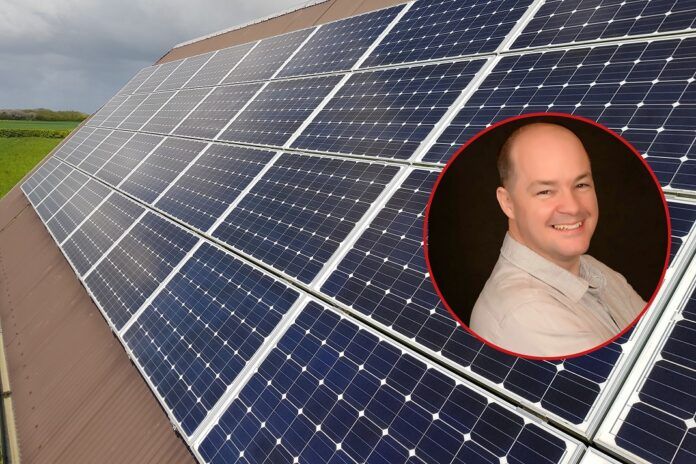As demand for renewable energy continues to rise, driven by regulatory changes and consumer demand for energy efficiency, roofing contractors have a unique opportunity to upskill. Griff Thomas, managing director of GTEC, outlines opportunities in solar photovoltaics (PV) and explains how and why roofers should train for this growing market.
The market for solar PV has seen impressive growth over its lifetime, recently exceeding 1.5 million MCS registered installations since records began in 2008. Notably, half a million solar PV systems have been installed since subsidies ended in 2019, indicating robust consumer demand for clean energy, reduced bills and independence from the national grid.
Additionally, upcoming regulatory changes could see solar PV installed at an even faster pace. The government is currently consulting on whether to make solar PV mandatory for new builds from next year – a proposal that is supported by 79% of all MPs and 83% of Labour MPs, according to a recent YouGov poll*.
This combination of organic and regulatory-driven growth lays a strong foundation for the future of the solar PV market – great news for roofing contractors looking to expand into emerging sectors while meeting growing demand for energy efficiency.
Rooftop innovations
Like all low carbon technologies, rooftop solar has seen significant innovation over the past decade, transitioning from the traditional on-roof panels to more advanced and aesthetically pleasing integrated solutions.
A common sight on homes across the UK, on-roof panels have been standard for solar PV installations for many years. They are simple and effective but can also present installation challenges. Roofs need to be strong enough to bear the extra weight and in reasonable condition to prevent damage to existing tiles. Leaks are rare, but as mounting is drilled directly into rafters and re-sealed, proper installation techniques are essential to prevent problems further down the line.
The development of integrated solar panels is a significant step forward for the domestic solar market, one that is gaining momentum in the UK. In-roof solar panels are designed to mimic the appearance of a traditional roof tile, blending seamlessly with the aesthetic of the home. Installed directly on to roof battens, integrated solar is ideal for both retrofit projects and new builds, providing housebuilders with a future-proofed solar energy solution that complies with current and future energy efficiency standards.
Integrated systems are relatively new to the market, but contractors will benefit from training that covers both on-roof and in-roof techniques to enable them to deliver flexible and bespoke solutions for housebuilders and private customers.
Tips for solar success
As well as the learning about the different types of solar PV, roofing contractors need to develop the appropriate knowledge and skills to ensure their installations are safe and efficient. Key considerations should include:
- Understand the basics: Get familiar with the basics of solar PV systems, including how they convert sunlight into electricity, the role of each component, for example, inverters and EESS (batteries), and what factors and materials contribute to energy efficiency.
- Update your knowledge: the low carbon and renewable energy sector is moving fast, so keeping abreast of relevant developments, for example, Part L, the Future Homes Standard and upcoming changes to MCS standards, will help you to channel your business efforts to maximise return.
- Technical training: Technical training has been developed specifically for roofers who want to get into solar PV installation, providing essential hands-on experience and theoretical knowledge. A quality advanced solar training course will cover installation techniques, safety procedures, system design and maintenance, as well as the impact of changing legislation on roofing and solar PV installation. Because these courses build on existing knowledge and experience, training can be completed in just one day.
- Competence and certification: The Electrotechnical Certification Scheme (ECS) is the competence scheme that covers electrotechnical operatives, there are various cards depending on your job role and qualifications. Your solar PV training might include the ECS test – check before enrolling. MCS accreditation may also enhance your business opportunities.
- Have a clear business strategy: Developing a clear business strategy is essential for a successful transition. This includes marketing solar PV services to existing and potential customers, understanding pricing models and identifying target markets. Emphasising the long-term cost savings and environmental benefits of solar PV systems can be a compelling selling point.
Solar PV presents a promising opportunity for roofers to capitalise on the UK’s low carbon goals and enhance their business offering. By taking a strategic approach that includes quality training designed specifically for the roofing sector, roofing contractors can become key players in this dynamic industry.
* https://mcsfoundation.org.uk/news/mps-overwhelmingly-back-mandatory-solar-panels-for-new-builds/
https://www.wienerberger.co.uk/products/roof/in-roof-solar/advanced-solar-training




